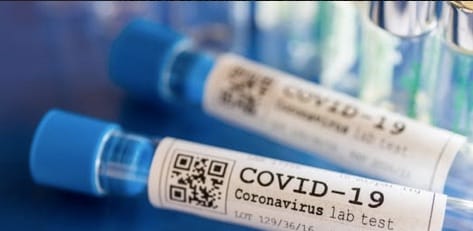Research into vaccination doubts in Belgium may increase the effectiveness of the COVID-19 vaccination campaign
Scientists from the Institute of Tropical Medicine (ITM) in Antwerp are investigating in a new study why people doubt whether or not to get vaccinated against COVID-19. By engaging in open dialogue with the population and public health authorities on the one hand, and by analyzing social media posts on the other, the researchers proactively map out vaccination doubts in Belgium. The results of the study can help to roll out an effective and targeted COVID-19 vaccination campaign in our country. This study is coordinated by ITM, in close collaboration with researchers from KU Leuven, the London School of Hygiene and Tropical Medicine (LSHTM) and l’Institut Pasteur in Paris. This research was made possible thanks to the support of the Flemish Minister of Science Hilde Crevits through the Fund for Scientific Research (FWO).
At the beginning of this week, the ministers of Health announced that the vaccination against COVID-19 in our country will be free and voluntary. The aim is for at least 70% of the population to be vaccinated. After all, individual protection and potential group immunity reduce the risk of transmission. Still, many hesitate to get vaccinated. Prof. Koen Peeters of ITM explains: “The reasons why people sometimes have doubts are accompanied, among other things, by an increased mistrust of science and the authorities. Moreover, due to the pandemic, we are living in uncertain and fearful times that amplify vaccination doubts. This raises more questions about the safety and effectiveness of rapidly developed vaccines. Before the vaccine is put on the market, and also during the vaccination campaigns themselves, it is crucial to know the attitude of the population towards that vaccine. ”
In order to map vaccination doubts in our country, the researchers are entering into a dialogue with various groups of the Belgian population as well as with the public health authorities. In addition, they will also analyze posts on social media such as Twitter. The project will last a year and aims to map both online and offline vaccination doubts qualitatively and quantitatively. Dr. Charlotte Gryseels of ITM: “It makes little sense to make a vaccine available in large numbers if many people are not willing to be vaccinated. The Belgian public health authorities therefore need a vaccination strategy that leaves room for dialogue with people about why they question the safety or effectiveness of COVID-19 vaccines. For example, the results of the research can provide a guideline for the roll-out of targeted vaccination campaigns. ”
11 research projects are supported
This project is one of eleven Flemish research projects in all scientific areas into COVID-19 that have been approved and receive support from the Flemish Minister of Innovation and Science Hilde Crevits. Following an initial call by Minister Crevits and the Scientific Research Fund, 9 scientific projects were selected with a focus on the clinical and epidemiological aspects of the pandemic. But because it was clear that corona also has long-term effects on personal well-being, the social and economic fabric, education, … a second call was launched. Eleven projects have now been selected from these and together receive 2.5 million euros in support. “The current pandemic affects all of us in our daily lives and the consequences will be felt in society for a long time to come. To respond to these consequences and limit the impact as much as possible, research and new knowledge are desperately needed. ” says Hilde Crevits, Flemish Minister of Innovation and Science.
Bron: ITG
–


